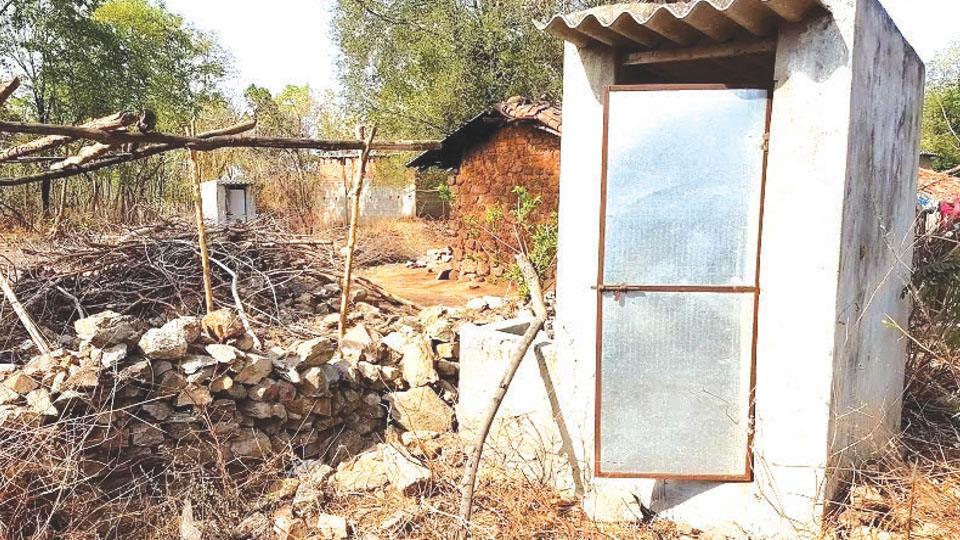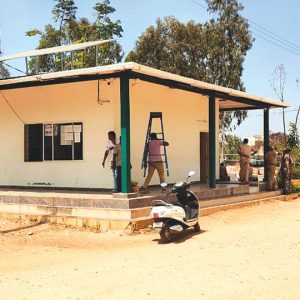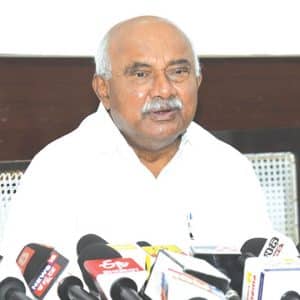Pathetic state of affairs in CM’s home town, points fingers at Government’s failure in addressing social malaise
Mysuru: Eight years after Mysuru district was declared Open Defecation Free (ODF) in 2016, the issue has silently re-emerged, even in the hometown of Chief Minister Siddaramaiah.
Following the National Sample Survey and Swachh Bharat Abhiyan in 2016, Mysuru had proudly earned the ODF status. However, in recent years, instances of open defecation and public urination have resurfaced across Mysuru city, its outskirts, and surrounding villages, raising concerns about the State Government’s failure to provide adequate infrastructure.
In 2015, the Union Ministry of Urban Development had named Mysuru the Cleanest City in India. Yet, despite the construction of public toilets in various parts of the city, open defecation persists, posing serious public health risks.
This unhygienic practice is often linked to the spread of diseases like cholera, typhoid and other epidemics, creating an ongoing challenge for authorities, even 75 years after India’s independence.
According to Swachh Bharat Mission data, Mysuru district comprises 4,45,062 families across its taluks — H.D. Kote (48,057), Hunsur (59,692), K.R. Nagar (24,666), Mysuru (54,811), Nanjangud (89,106), Periyapatna (54,878), Saligrama (20,574), Sargur (32,938) and T. Narasipur (60,340).
Of these, 4,19,927 families have access to toilets. Additionally, 8,786 families had constructed their own toilets prior to the Government’s initiative, bringing the total number of toilets to 4,28,173 across the district.
However, a survey by the Zilla Panchayat (ZP) shows that 16,349 households still lack toilets. While 13,655 applications have been received through the Citizen App, 2,694 are still pending approval. Once these applications are processed, the ZP plans to begin construction.
ZP Deputy Secretary (Administration) Dr. M. Krishnaraju confirmed that the district aims to achieve 100 percent toilet coverage by March 2025. He noted that the issue often arises when households are divided, and new houses are built without accompanying toilets.
Of the remaining 16,349 toilets, work has already begun on 13,655, with the remaining 2,694 expected to be completed soon, helping to meet the March 2025 target.
Government’s faux pas keeps unhealthy practice alive
While the Government continues to promote awareness against open defecation, it ironically stands as the primary culprit behind its persistence.
For instance, thousands of Ashraya houses have been built in Mysuru city and district over the past 25 years, costing the Government crores of rupees, yet these homes lack basic toilet facilities. Despite this, the Government has issued a directive requiring beneficiaries to bear the expense of building their own toilets.
Many beneficiaries, already struggling with financial constraints, find it difficult to spend thousands of rupees to construct toilets. As a result, they are forced to resort to open defecation. Had the Government included toilet construction as part of the housing scheme, this widespread issue could have been prevented.
This glaring oversight by the Government has perpetuated the unhealthy practice of open defecation, failing to address the root of the problem comprehensively.








Recent Comments